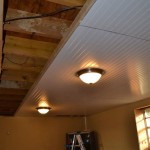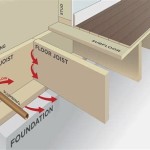How to Improve Basement Odor
Basements, by their nature as subterranean spaces, are often plagued by persistent and unpleasant odors. These smells can range from a musty, damp scent to more alarming smells associated with mold and mildew growth. Identifying the root cause of the odor and implementing targeted solutions is crucial for improving the air quality and usability of the basement space. The following explores the common sources of basement odors and outlines effective methods for eliminating them.
Identifying the Source of the Odor
The first step in combating basement odor is to accurately identify its source. A thorough inspection of the basement is essential to determine the underlying cause and direct the remediation efforts. Common culprits include moisture, mold, organic matter, and issues with drainage or ventilation.
Moisture Intrusion:
Water leaks, condensation, and inadequate waterproofing are primary contributors to basement odor. Sources of moisture include leaky pipes, cracks in the foundation, overflowing gutters, and poor drainage around the foundation perimeter. The presence of moisture creates an ideal environment for mold and mildew growth, which are significant sources of musty odors.
Mold and Mildew:
Mold and mildew thrive in damp, poorly ventilated areas. They release volatile organic compounds (VOCs) that produce the characteristic musty smell associated with basements. Mold can grow on various surfaces, including drywall, wood, carpets, and concrete. Identifying the type of mold present can be helpful in determining the appropriate remediation strategy.
Organic Matter Decomposition:
Organic materials such as wood, paper, and textiles, if exposed to moisture, can decompose and release foul odors. Stored items, forgotten debris, and decaying plants can all contribute to the problem. Rodent infestations and their associated waste products can also introduce unpleasant smells.
Drainage and Sewage Issues:
Problems with the basement's drainage system, such as clogged floor drains or a malfunctioning sump pump, can lead to water accumulation and stagnant water smells. Sewage backups, while less common, can create a highly unpleasant and potentially hazardous odor. Even minor sewer gas leaks can contribute to persistent basement odors.
Ventilation Problems:
Inadequate ventilation traps moisture and odors, exacerbating the problem. Basements often lack sufficient airflow, preventing the dissipation of moisture and VOCs. This can create a stagnant and unpleasant environment.To identify the source, carefully examine the basement for visible signs of moisture, mold growth, or damage to building materials. Use a moisture meter to assess moisture levels in walls, floors, and other surfaces. Sniff around different areas to pinpoint the location where the odor is strongest. Document any findings to aid in the development of a remediation plan.
Implementing Solutions to Eliminate Basement Odors
Once the source of the odor has been identified, appropriate solutions can be implemented to eliminate the smell and prevent its recurrence. These solutions may involve addressing moisture issues, removing mold and mildew, improving ventilation, and managing organic matter.
Addressing Moisture Problems:
The most critical step in odor control is to eliminate the source of moisture. This may involve repairing leaky pipes, sealing cracks in the foundation, improving drainage around the foundation, and ensuring proper gutter function. Applying a waterproof sealant to basement walls and floors can also help prevent moisture intrusion. A dehumidifier can be used to regulate humidity levels and prevent condensation.
Mold and Mildew Remediation:
Mold and mildew growth must be addressed promptly to eliminate the associated odors. Small areas of mold can be cleaned with a mold-killing solution and scrub brush. For larger infestations, professional mold remediation services may be required. It is important to wear appropriate protective gear, including gloves, a mask, and eye protection, when cleaning mold. After cleaning, ensure the area is thoroughly dried to prevent regrowth.
Improving Ventilation:
Adequate ventilation is essential for removing moisture and odors from the basement. Consider installing exhaust fans to remove stale air and moisture. Ensure that windows, if present, are opened regularly to allow for fresh air circulation. A whole-house ventilation system can also be installed to provide continuous air exchange. Dehumidifiers with ventilation capabilities can also aid in circulation.
Managing Organic Matter:
Remove any organic materials that may be contributing to the odor, such as decaying wood, paper, or textiles. Store items in airtight containers to protect them from moisture and prevent decomposition. Regularly clean and disinfect the basement to remove dirt, dust, and debris. Consider using storage solutions that elevate items off the floor to prevent moisture absorption.
Cleaning and Disinfecting:
Regular cleaning is essential for maintaining a fresh-smelling basement. Use a disinfectant cleaner to clean floors, walls, and other surfaces. Pay particular attention to areas that are prone to moisture accumulation. Baking soda can be used to absorb odors from carpets and other fabrics. Air fresheners can provide a temporary solution, but they should not be used as a substitute for addressing the underlying cause of the odor.
Sump Pump Maintenance:
A properly functioning sump pump is crucial for preventing water accumulation in the basement. Regularly inspect and maintain the sump pump to ensure it is working correctly. Clean the sump pit regularly to remove debris and prevent clogs. Consider installing a backup sump pump to provide redundancy in case of power outages or pump failure.
Professional Assistance:
In some cases, professional assistance may be required to address persistent or severe basement odor problems. A mold remediation specialist can assess the situation and develop a customized remediation plan. A plumber can diagnose and repair plumbing leaks or drainage issues. A waterproofing contractor can address foundation problems and install waterproofing systems. It's important to select reputable and licensed professionals with experience in addressing basement odor problems.Preventative Measures for Long-Term Odor Control
Once the basement odor has been eliminated, it is important to implement preventative measures to maintain a fresh-smelling environment and prevent future odor problems. These measures focus on controlling moisture, maintaining good ventilation, and practicing regular cleaning and maintenance.
Maintain Consistent Humidity Levels:
Using a dehumidifier to maintain humidity levels below 50% can prevent mold and mildew growth. Regularly check and empty the dehumidifier's water reservoir. Consider using a dehumidifier with a built-in hygrometer to automatically regulate humidity levels.
Ensure Proper Ventilation:
Open windows regularly to allow for fresh air circulation. Use exhaust fans in bathrooms and laundry rooms to remove moisture. Consider installing a whole-house ventilation system for continuous air exchange.
Regular Cleaning and Maintenance:
Clean the basement regularly to remove dirt, dust, and debris. Inspect for leaks and address any problems promptly. Maintain the sump pump and drainage system to prevent water accumulation. Store items in airtight containers and elevate them off the floor. Consider using odor-absorbing products, such as activated charcoal, to help control odors.
Monitor for Early Signs of Mold Growth:
Regularly inspect the basement for signs of mold growth, such as discoloration or musty odors. Address any issues promptly to prevent them from escalating. Early detection and remediation can prevent costly and time-consuming repairs.
Proper Landscaping:
Ensure that the landscaping around the foundation slopes away from the house to direct water away from the basement. Clean gutters regularly to prevent overflows and water accumulation around the foundation. Avoid planting shrubs or trees too close to the foundation, as they can trap moisture and contribute to humidity problems.
Educate Residents:
Educate all residents about the importance of preventing moisture accumulation and maintaining good ventilation in the basement. Encourage them to report any leaks or signs of moisture damage promptly. By working together, residents can help maintain a fresh-smelling and healthy basement environment.By identifying the source of the odor, implementing targeted solutions, and taking preventative measures, it is possible to eliminate basement odors and create a more pleasant and usable space. Consistent effort and attention to detail are essential for long-term odor control and a healthy basement environment.

How To Make A Basement Smell Better With S Wikihow

How To Make A Basement Smell Better With S Wikihow

How To Make A Basement Smell Better With S Wikihow

How To Make A Basement Smell Better With S Wikihow

How To Get Rid Of Basement Odor And Why It Smells In The First Place

How To Get Rid Of Basement Odor 10 Easy Methods

How To Get Rid Of Mold And Mildew Smell In Your Basement Eyeglass Helpers

How To Make A Basement Smell Better With S Wikihow

How To Get Rid Of Basement Odor And Why It Smells In The First Place

How To Make A Basement Smell Better With S Wikihow







